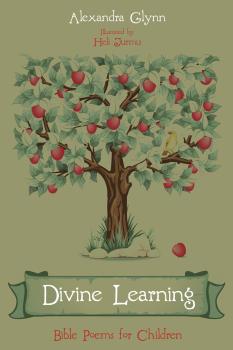ТОП просматриваемых книг сайта:
Alexandra Glynn
Список книг автора Alexandra GlynnАннотация
Pre-civilization, the Egyptian Empire, the Hittite Empire, the Phoenician Empire, the Persian Empire, the Roman Empire–all of these civilizations enter into the pages of the Bible. These six stories, written as if they happened in each of these civilizations, explore the faith and happenings of the Bible and seek to bring them into familiarity. How did the hearts of men operate thousands of years ago? What were the central images and parables used to proclaim truths about the invisible divine? What was the arc of the history of the waiting for the day of redemption like? Jesus said that there were many widows in Israel in the days of Elijah, but the prophet was sent as a missionary to a Gentile, and not a widow of Israel. The many missions to the Gentiles in the Old Testament times are the central theme of this book. «And I will set a sign among them, and I will send those that escape of them unto the nations, to Tarshish, Pul, and Lud, that draw the bow, to Tubal, and Javan, to the isles afar off, that have not heard my fame, neither have seen my glory» (Isaiah 66:19).
Аннотация
The theology of the Laestadian Lutherans is simply set forth here, accessible to the lay reader. Contemporary issues are dealt with, and Scripture is cited to help us all keep discerning a path forward to help our neighbors. Love, sin, grace, images, translation, characters from the Bible, interpretation issues, and many other topics are covered in this brief but comprehensive volume. The reader is challenged in this collection of short essays by a clear and tender theology. We are all asked to be concerned with how we act in our communities and with the person living right next door. We are asked to ponder where we get our answers about issues we are all confronted with in the home, the place of worship, and the workplace. Who is our neighbor? Who are we, really? And where do we go for help? What moral and theological questions are we facing every day? The straightforward biblical theological essays found in this volume guide us to carefully consider our deepest heart thoughts, our God, and the world we live in.
Аннотация
Have you wondered about people in conservative religions who do not want to leave them? Do they struggle with life choices, children, marriage, careers, hobbies, and friends? Do they live and die like the rest of us? In the ways that matter, they do. This book follows one who might be our neighbor, our friend, our coworker. He has faith of the heart. He is a sinful person. He struggles with questions of the Bible, which for him has the answers to the questions about who we are, about how we ought to live in our families and with our neighbor. The subject of this study, Edmund, questions others and himself, and gets questioned. Through it all he lives in hope, and by the grace of God remains a part of the vine, cared for by the husbandman. Get to know him. The actions of his life are simple. By telling a little story about the life of one person in a sober religion, this book hopes to touch everyone with the comfort that we ourselves have been comforted with. For if we are out of our minds, it is for you. And if we are sober, it is also for you.
Аннотация
Dear child, have you read the Holy Scriptures? Have you wanted to know the entire scriptures, not just the popular portions? Here is a book of poetry from the scriptures for you to begin your learning of the whole Word of God, every word of which is right and blessed. You have read about David and Goliath, but you also want to ponder Jahaziel, Abigail, Esau, and many others–all the events and teachings of the scriptures. With this book, as a child, you can study some of the portions of scripture that are often skipped over, in this easily accessible, easily memorized form. Then you will be encouraged into the scriptures themselves, and you will have this door into them in your memory from the pictures and the poems, so that your learning stays with you, and so that you do not forget the entire, and entirely beautiful, Word of God.
Аннотация
These are psalms in the sonnet form–life's sonnets. They are about loss, hope, and Christ. They speak to the human condition, which Christ knew and addressed. They try to contemplate the Bible. They speak the messages of abandonment, finding, gratitude, searching, temptation, and peace. They struggle with indifference. They are about human beings, the wide things we care about mutually. These are poems about crying and cursing, blessing and loss, to move human beings by sonnets towards understanding, caring, questioning and answering. The simple language reflects the author's perception of how clearly and simply so many of life's questions can be reflected on. The depths and heights of emotion often call for common images to express them best. This is what the Bible does, and these sonnets seek to speak the language of the Bible, especially its poetry.





